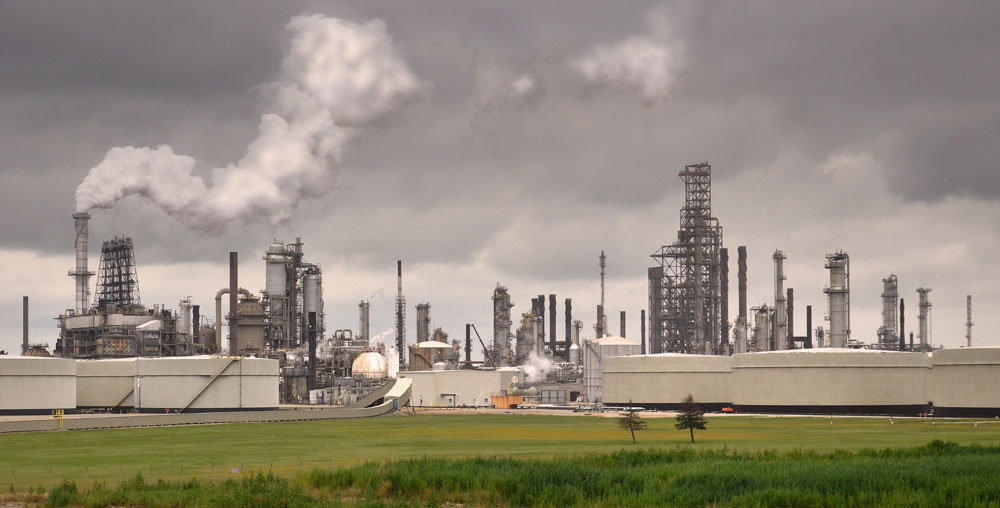
December 9, 2020; New York Times, Bloomberg, Washington Post, and In These Times
One of the largest public pension plans in the US, the world’s largest food company, and an entire country have determined it is time to step away from fossil fuel—as an investment, a significant portion of a company’s methods of product creation, and a country’s consequential move away from an economic driver—all in the interest of eliminating greenhouse gases and reversing climate change. At the same time, a fossil fuel company is using marketing to make an attempt at survival.
On Wednesday, Thomas DiNapoli, comptroller for New York State, released a statement saying New York has a goal of decarbonizing the entire $226 billion employee pension fund. “Achieving net-zero carbon emissions by 2040 will put the fund in a strong position for the future mapped out in the Paris Agreement,” DiNapoli announced. The pension fund will divest from gas and oil companies if the companies cannot create a genuine business plan that is aligned with the international accord to combat global heating. “New York State’s pension fund is at the leading edge of investors addressing climate risk, because investing for the low-carbon future is essential to protect the fund’s long-term value,” DiNapoli says.
Nestle SA—the largest food company in the world, from baby food to pet food, including chocolate, of course—is thinking along the same lines. The company has announced a goal of net zero greenhouse gasses by 2050 across all of its brands, investing $3.6 billion over the next five years to fight climate change, switching the electricity at its 800 factories to renewable sources. In addition, over the next 10 years, Nestle will plant 200 million trees. The company has a poor reputation when it comes to packaging waste, damaging the environment, and hoarding water. Perhaps this is a start for reversing the bad practices of the past.
Denmark is making an even more momentous transformation. The country of Denmark produces oil from deposits that exist under the North Sea. Last Friday, they announced they are ending state-approved exploration of the North Sea floor. Denmark’s goal of halting all oil extraction in 30 years joins the timeline the European Union has established for becoming carbon neutral. No new licenses will be issued in Denmark and existing licenses for oil and gas extraction will no longer be valid after 2050. It will likely cost the country $2.1 billion of its gross domestic product, which was $348 billion in 2019.
“It’s a tough decision, it’s an expensive decision, but it’s the right decision,” Dan Jørgensen, the Danish climate and energy minister, tells the Washington Post. The move “will cost taxpayer money” but is vital to stay “trustworthy,” as the country pursues the E.U. climate goal for 2050, he adds.
Sign up for our free newsletters
Subscribe to NPQ's newsletters to have our top stories delivered directly to your inbox.
By signing up, you agree to our privacy policy and terms of use, and to receive messages from NPQ and our partners.
“Denmark is once again showing its willingness to take bold steps to signal its dedication to deep decarbonization and it sends an important signal,” says Sarah Ladislaw, director of the energy security and climate change program at the Center for Strategic and International Studies. “This move will not have an important impact on oil and gas markets, but it will be instructive to see how Denmark continues to reshape its economy as it moves away from the production of oil and gas.”
Meanwhile, Santa Barbara for Safe and Local Transport (SBSLT) has been running ads on social media platforms like Facebook and Instagram, targeted to California residents, which say things such as “Pipelines support more than 500,000 jobs in the United States. Defend them!” The name and logo—far-off mountains and a bit of ocean—belie the actual purpose of SBSLT: to sway the opinions of the residents of the central coast of California when it comes to ExxonMobil’s activities.
Exxon lost its ability to transfer oil from offshore platforms in 2015 when the pipeline broke, creating the disastrous Refugio oil spill. The company has determined that it can use tanker trucks to transport oil to refineries. Last fall, a survey of the county residents found only 32 percent support the trucking of oil overland, and a majority oppose more drilling off shore.
The Leonard C. Goodman Institute for Investigative Reporting provided a year-long fellowship to In These Times to examine 11,622 Exxon social media ads that contained about 350 distinctive messages from June 1, 2018 to the end of May 2020, appearing on Facebook and Instagram in the US approximately 265 million times. They were not advertising a brand-new technology, or a new style of clothing, or the latest model of car. Instead, Exxon spent millions of dollars trying to sell an old product, one that appears destined to go out of style. The company spent around $10 million in social media ads, $23 million on lobbying, and $203 million on TV, radio, print, and outdoor ads to sell something that does what it has done for decades, a product that entire countries, including the entire EU, want to stop purchasing.
The Santa Barbara County Board of Supervisors will probably come to a decision in 2021. And Exxon will likely continue the ad blitz in selected regions across the country in an attempt to continue its “social license” to operate, in the face of climate change. If one of the largest pension funds, the largest food company, and the entire country of Denmark are any indication, Exxon has wasted a great deal of money on advertising.—Marian Conway













